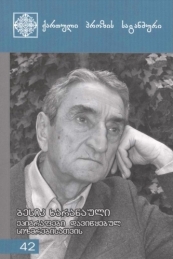THE EPIGRAPHS OF FORGOTTEN DREAMS
Epigraphs of Forgotten Dreams is a philosophical novel with three protagonists: one between eight and ten years old, one between fourteen and fifteen, and the author himself. The author perceives his fellow characters as others and not as aspects of his own childhood; through them he tries to recollect and feel youth’s passions and aspirations. Another key character of the novel is Mother – a half-mythical, half-real image of a woman who is the only tie binding the three characters, as she gave birth to all three and sees them as the one child born to her. In life nothing flows continuously: the author revives his and other characters’ native village, region, country, city, and with these fragmental images builds a chain of events that leads to a final amalgamation of three protagonists. The eight-to-ten-year-old first started writing at the age of eight; his inspiration was the word ‘confession’. The meaning of the word influenced him so deeply that he decided to confide his secrets to paper. The adolescent stopped writing his confessions on paper, and began instead to switch between the real and invented worlds. In the village, where he lived, the only tradition that survived were making khinkali (a sort of ravioli) and herding cattle: all the rest had vanished or had been prohibited. Grandmothers whispered stories of ancient heroic deeds. The only eternal idol was Stalin, who had no inception and no end. And in every family there were three sacred words: Fear, Hunger and Wood. One fine day the adolescent, aiming to show his notebook of poems to a famous poet, decides to leave his native village and travel to the big city. He wants dramatic changes in his life: to be reborn, since his native village has become a cage for a teenager. He longs for some symbolic catastrophe to jolt him free from his predetermined course of life. But the city has become a real cage for actual writers, offering only inescapable loneliness and hopelessness. The author’s spiritual metamorphosis occurs when one day the young boy and the adolescent both visit him and tell him that the huge wooden cross on the grave of their mother has fallen down. At this crucial point they all start to rebuild the mother’s grave, looking for a sacred mythical place on a mountain peak called ‘The Giants Playground’. The image of mother unites them, and inspires the writer to see the universe as it is in reality, revealing the truth that a human being is born not alone, but as one being.
‘There are ‘good writers’, ‘very good writers’, ‘great writers’, as well as a thousand other epithets applied to writers, but I want to establish a new epithetic and use it first on Besik Kharanauli: ‘a writer for good readers’.’
Z. Samadashvili, author / Radio Liberty
‘Besik Kharanauli’s Epigraphs for Forgotten Dreams is a biographical novel, but one which Hermann Hesse would have called ‘the biography of the soul’. Despite its fragmentary nature, Epigraphs for Forgotten Dreams is one continuous paragraph, which readers themselves will put together and make whole from the mosaic fragments which the writer has put before them. In general, in the case of Besik Kharanauli’s texts, nothing is ever given gratuitously: these texts demand of the reader participation, collaborative thinking.’
M. Tqeshelashvili, literary critic
In case of using the information, please, indicate the source.
